“When we have kids, promise you’ll let me name all of the boys.”
I don’t remember where or in what context the Novio asked me this favor, but I shrugged – and then mentally shuddered. We were only a few months into our relationship and I was probably thinking about where we should have dinner, not children. After all, I was 22, temporarily teaching English in Spain and Gambrinus would not be a proper name for a peque.
Nine years later, we’d been married for eight months when I found out I was pregnant with our first child. As the Novio shouted, “We’re screwed!” and I immediately regretted the beers I’d drunk the night before (I deep-down suspected being preñada while having dinner with a friend), he pointed at me and reminded me of the promise to let him name the varones.
Admittedly, the only time I’d felt inclined to pick out baby names was when I had a grade-school crush on Jakob Dylan and vowed that my child would have musical prowess and blue eyes. And when you’re expecting a child whose parents do not share a language or culture, it was almost better that we’d divided the task. But naming a child is a big job. As the gender reveal date hurtled towards us, I had a lot of thinking to do.
Middle names and last names in Spain
The only people who call me by my full name, Catherine Mary, are my mother and the Novio’s youngest brother. Oh, and the doctors who look blankly at the list of names and peep a, “Mah-reeee?” before I stand up and correct them, or the letters addressed to “SRTA. MARY” as if it were my first surname.
I often have to explain to people over the phone that I have one surname, Gaa, and two first names. In Spain, most have one name and two surnames. If I were Spanish, my first surname would be my father’s first and the second would be my mother’s first. This means I would share surnames with my siblings, but not my parents.
So, imagine my mother is named María Gracia González de la Fuente and my father is Ricardo Hidalgo Barros. So, I’d probably be Mari Catherine Hidalgo González. Because I decided to keep my last name when the Novio and I got married, our child(ren) will have a Spanish surname first, followed by my hard-to-pronounce, very odd and very Central European surname. Vaya.
And then there’s the question of compound names: Jose María (male), María José (female), Juan José, Luis Miguel, and so on. These are considered full first names, not a first and a middle.
The Novio was very firm: no compound names, and no middle names. And with a last name like mine, it’s highly unlikely that someone will share a name with Micro during his lifetime (and that only one name will be sternly shouted when I have to get cross).
Family ties and the name game
Paco regaled me with his favorite idioms in English as I tried to gauge his level of English during our first class. “My tailor is rich!” he repeated a few times before asking me for a moment to skim the sports section as I picked at my nails. I asked him about the basics, hearing drilled answers about his job and summer vacation rattled off until I asked him if he had children.
“My wife, she is Rosa. We have got two childrens, no, no! Two chiiiiildren, aha! They are Javi and Rosa.” I glanced at he business card he’d given me. Paco’s name is really Francisco Javier, as is his son’s, and his wife and daughter share a name. Two Franciscos and two Rosas sharing 65 square meters. Typical Spanish.
This is a common practice in Spain, which came in handy when I’d meet the parents of my students for the first time. If I’d neglected to look at the school records, I assumed the child shared a name with a parent; more than half of the time, I would be right. Perhaps more so than in the USA, children are named for close family.
I made it clear to my parents, Nancy and Don, that we wouldn’t be naming our children after them. After all, Nancy is the name of a knockoff Barbie that had her heyday in the 70s and 80s in Spain, and Donald is Mickey Mouses’s duckbilled pal. It’s bad enough to have a weird last name.
Both the Novio and I were named for family members; in fact, my mother tried to petition to change her name to Catherine Mary, after her maternal grandmother. My grandmother Agnes wouldn’t even entertain the idea, so the name for her firstborn daughter was picked out before my mom could even drive a car.
The Novio shares a name with his father, grandfather and great-grandfather. My own grandparents are Jack, Donald, Marguerite and Agnes; the Novio’s, Alquilino, María del Robledo and Elundina. My father has a Jr. after his name, and we have four John Robert Nicholases on my mom’s side. Many of the Novio’s cousins were named for family members or a combination of them. O sea, it wasn’t until I began thinking of what to name my own child that I noticed all of the patterns in baby naming in our families.
If we had a boy, there would be no discussion about names. Punto, pelota.
How do you solve a problem like María?
The English department of I.E.S. Heliche consisted of six women and a lone male, Miguel; Charo, Nieves, Valle, Asunción joined Ángeles and Silvia. While I admit that my Spanish wasn’t very good when I first moved to Spain, I gathered that their names were Rosary, Snows, Valley, Assumption, Angels… and Silvia.
The majority of them were in their early 40s, meaning they’d been born during the Franco era in which women were required to have their name proceeded by María de, Mary of Something. Our Lady of Whatever. Most women of a certain age have a religious name or biblical allusion, so you rarely heard a Jessica or Jennifer in a small town like Olivares. I soon began to connect the names I heard with their religious names: Pili comes from María del Pilar, the patron saint of Zaragoza, Maribel was the juxtaposition of María Isabel.
Many women drop María in favor of their second name, or they blend them.
Of Saints and Sinners
I had a very concerned parent at the door on the morning of September 13th, half apologizing and half worried that her daughter would act up that day. The result wasn’t a fever or a poor night’s sleep: I had neglected to recognize a little girl’s Saint Day.
In a place like Sevilla, religion runs deep, and María wouldn’t let me forget that as she pouted her way through even P.E. class, directing her six-year-old rabia straight at me as she played dodgeball.
Should I have been born sevillana on my same date of birth, there is a good chance I’d have been called Reyes. August 15th is not only a national holiday, but the observed feast of the Assumption, known as Día de los Reyes. Many Spaniards are named for the saint on the day they were born, such as my former coworker who was born on St. Joseph’s Day and thus called María José (if you’re curious, here’s the Catholic church’s Santoral so you can check out your birthday); others for a patron saint of their parents’ village. And then there’s the question of naming a child after a petition or promise one makes to the church.
One of the Novio’s coworkers has a strange name due to a promise his mother, who had trouble conceiving, made the the nuns she asked to pray for her. They tied a string around her stomach, which she was told not to take off until she was pregnant. She promised that, should she have a daughter, she would call her María de la Cinta; when M was born, his full name became M de la Cinta.
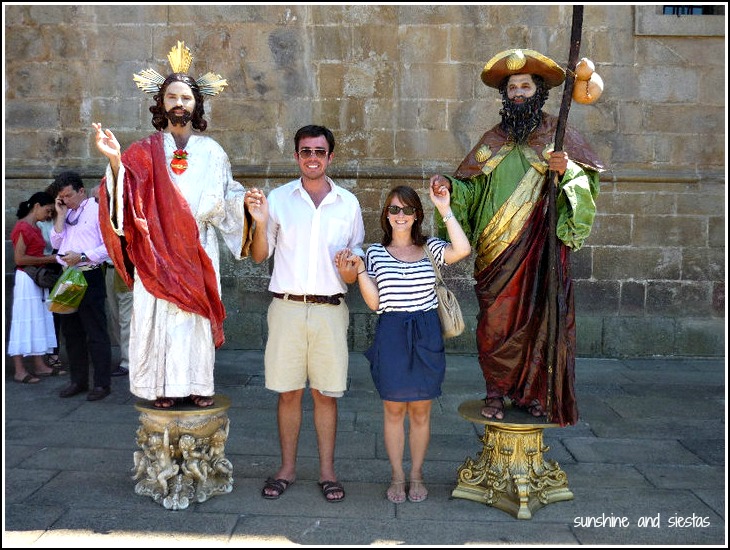
Some names are particularly regional or local; it’s common to hear shouts of Diego! in the main square of San Nicolás del Puerto, where the saint was born in year 1400. Eulalia, a teenaged martyr in Luisitania, is popular for baby girls in Mérida, and Jordi, the patron saint of Catalonia, is amongst the most popular name for boys, year after year (there are 67,000 of them!).
In 2012, the Instituto Nacional de Estadística released a database of the most popular names and surnames by province. Much like in the US, age-old names are making a resurgence: Nearly half a million children were born in 2015, and María and Daniel amongst the most popular.
Remember Paco? I taught him out of his office for two years immediately after giving his son, Javi, class at home. Javi had coyly told me about a girl he was interested in, and Paco slapped his palms on the table to echo the news – though far more excitedly – that Javi was finally dating. “Guess her name, Cat! It is so typical in Seville.” I tried the three most common: Macarena, Esperanza and Rocío.
I not only named his girlfriend, but her two younger sisters.
Micro’s due date is January 1st, so we could have considered Jesús or Manuel. Not on our shortlist, though.
The guiri conundrum: language versus culture
As if I didn’t have a million names spinning around my head already, we have the language issue: I am incapable of pronouncing the Novio’s name correctly and call him by his nickname. Rodrigo was out of the picture for the difficulty with the Rs. And if I can’t pronounce them, his American grandparents wouldn’t be able to, either.
Many of the female names that are popular today have English equivalents: Laura, Paula, Emma, Sofia, Julia. I like them in Spanish but not in English, or vice-versa. Paula in English becomes pauw-luh and Emma pronounced in Spanish sounds like you get your mouth stuck between syllables. Of my guiri friends who live in Spain and have had babies in the last few months, only a handful of them have chosen non-Spanish names; of those, the Anglo names are easy to pronounce with Spanish vowels.
What we’re naming our son
I’d been assigned any girl’s names, despite feeling like I was carrying a boy from the beginning. My mom quizzed me on which names I liked before asking the equivalent in English. “So, you’re saying that I could have a granddaughter named after the town where Jesus was born?”
Point taken, Nancy.
I casually thought about girl names. I like Belén, Martina, Carolina and Laia, but tried not to get my heart set on any one name until we found out the gender. I’d long known that a first-born male would have the same name as his father (and the three that came before him), and that Santiago and Diego were close seconds as the patrons of Spain and the Novio’s village, respectfully.
As I’ve found in my eight months of being pregnant in Spain, there’s no waiting to find out the gender of your baby. In fact, I’ve met just one woman who wanted to be surprised, and mostly because her Irish partner preferred waiting. I was a bit crestfallen when the Novio expressed that he’d wanted to know right away, as I genuinely believe this could have been one of the last happy surprises we’d ever get. But knowing we were having a boy made the naming process easier.
When the obstetrician pointed out the baby’s extra extremity, I breathed a sigh of relief as I pronounced his name aloud for the first time. The fifth in a long line of men who had been farmers and soldiers. And I could forget about female names until perhaps the next one came around.
We’re only five weeks or so away from getting a first glance of Enrique, who will be born in Triana between Christmas and Reyes. I often imagine who he’ll look more like, what we’ll teach him and how he’ll change us – giving him a name before he’s born has made his presence far more real to us.
What do you think about Spanish naming trends? I’m curious to hear the common names where you live!
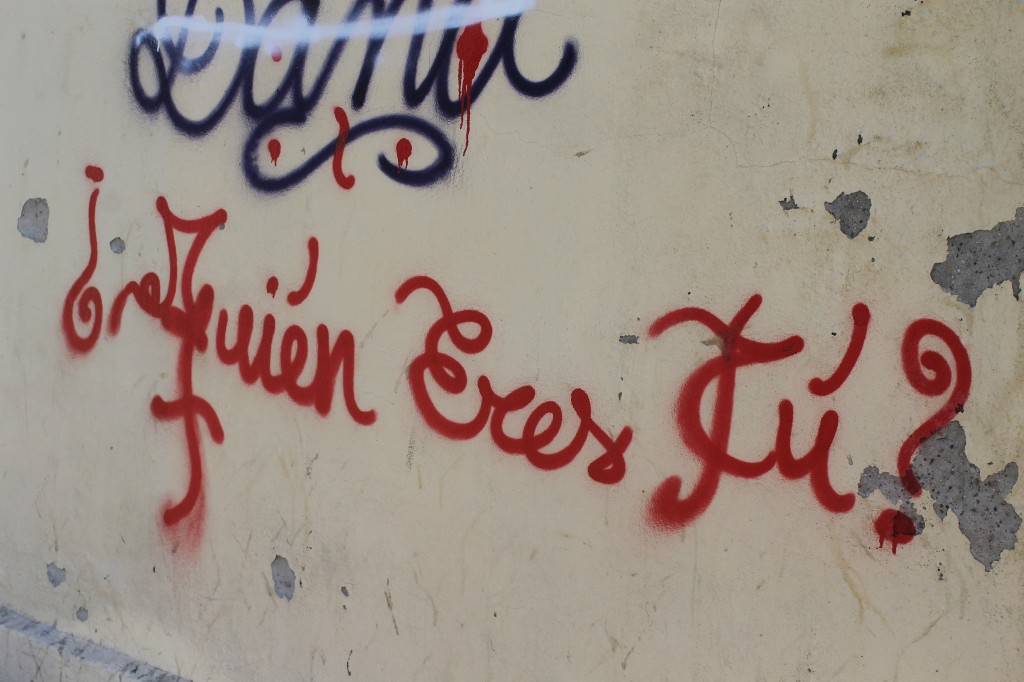
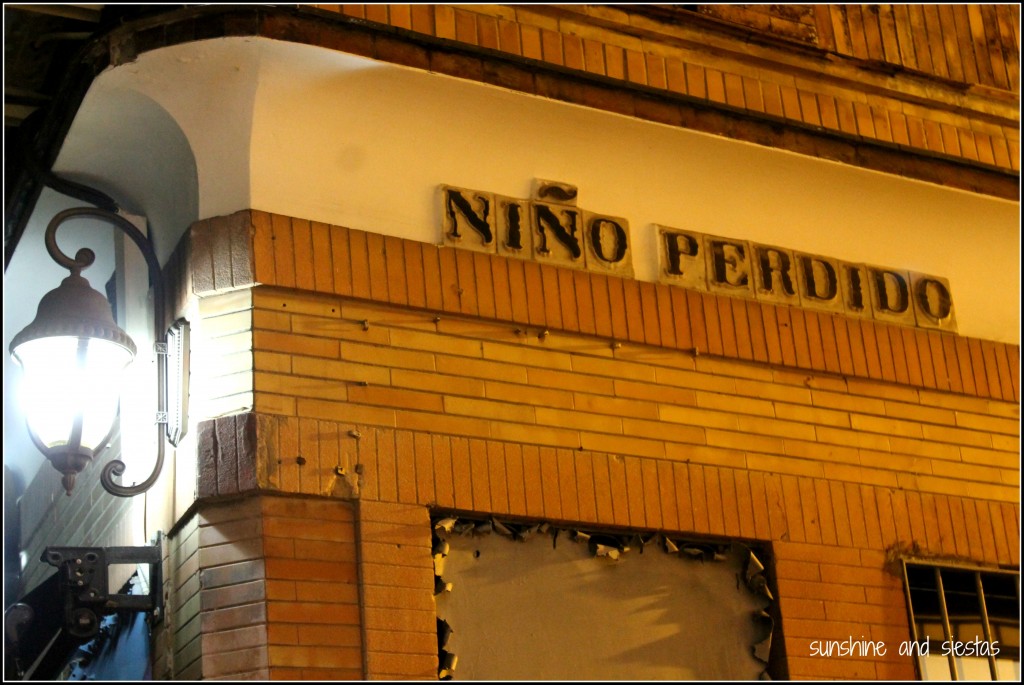
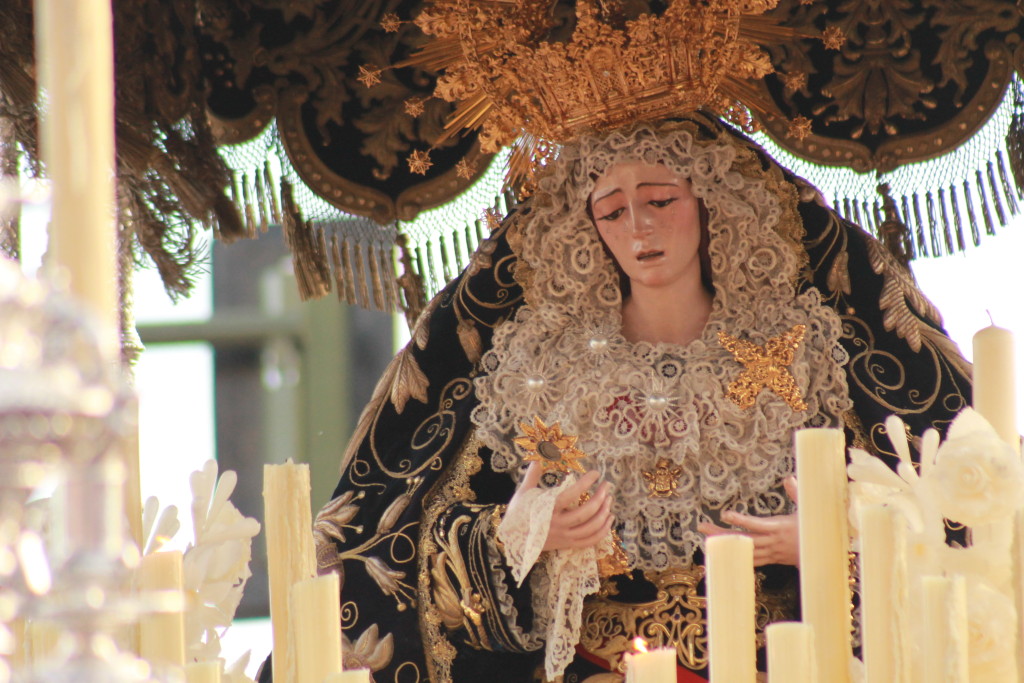
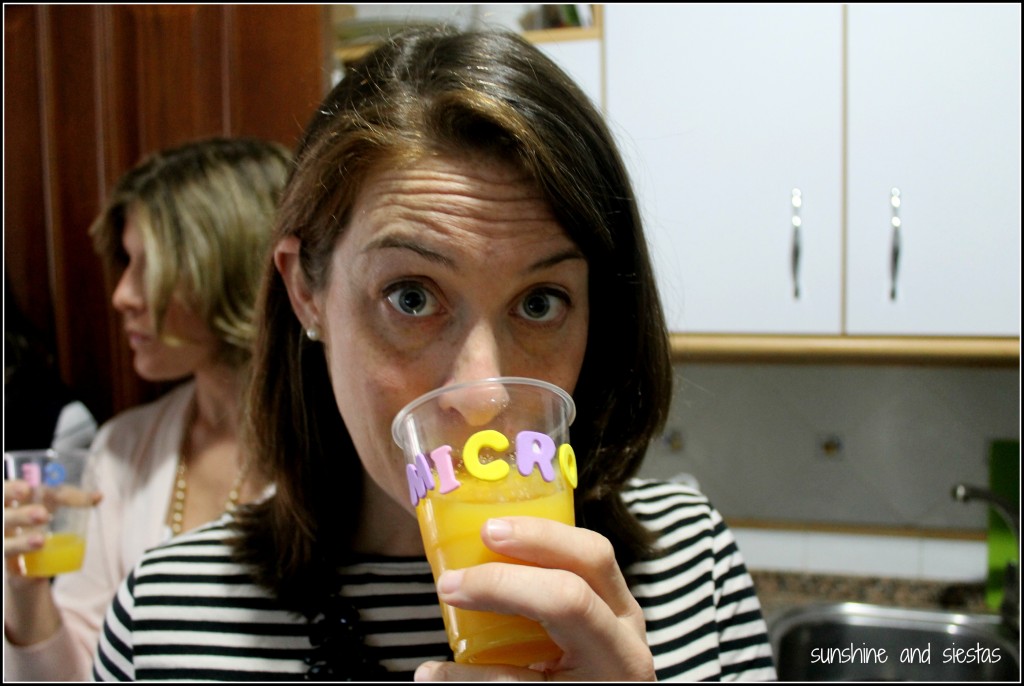
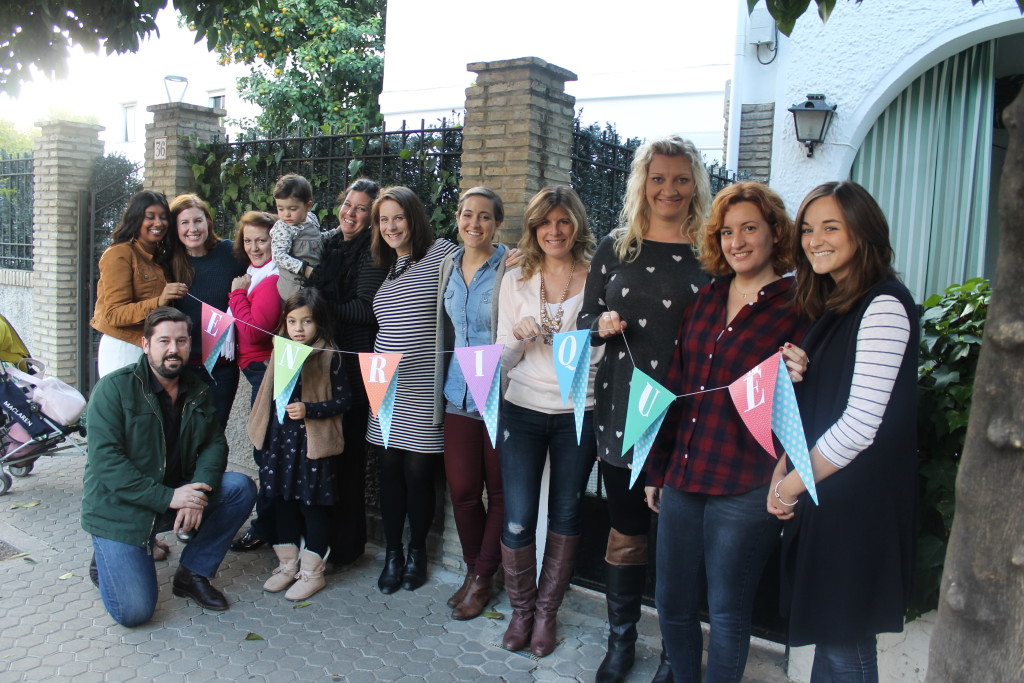
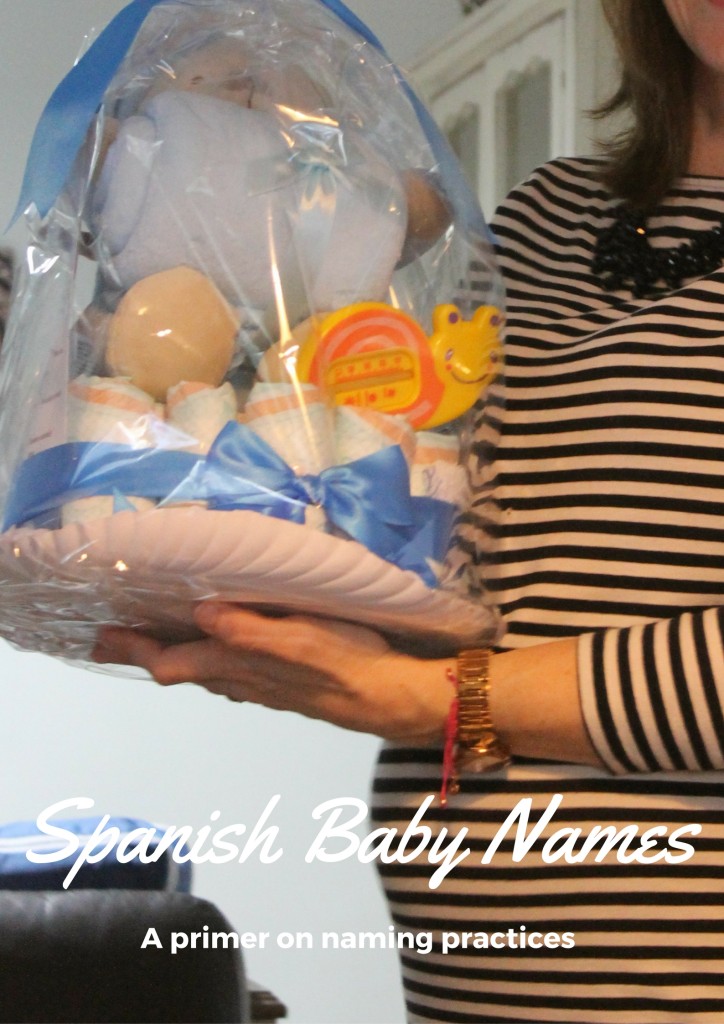





Felicidades, Cat!! I find it funny that Belen is one of our top girl names – after living in Galicia two years I developed a soft spot for that name as well. Loved reading this post and I’m wishing you the best with your first bebe!!
Loved reading this post and I’m wishing you the best with your first bebe!!
Thanks, guapa! I had no idea that Belén was popular in Galicia!
My husband is called Hiward; second Christian name. Here in our village it was new name to our older Spanish friends, and he is now known as AGUA!!!!!
I love it! Spaniards love nicknames anyway (I have a post half-written about it!), so I’m sure he’s único in that sense.
Our names in Australia are all so very common, though it’s becoming more and more of a multicultural society, so there are many ethnic names starting to pop up in popular culture here. Wishing you all the best in your pregnancy … looking forward to meeting Enrique!
Thanks, guapa!
LOVE this! And yay! and congrats!!
Jessie Voigts recently posted..An Exciting Day of Adventure in the French Alps
Thanks, Jessie! It’s all happening so fast!